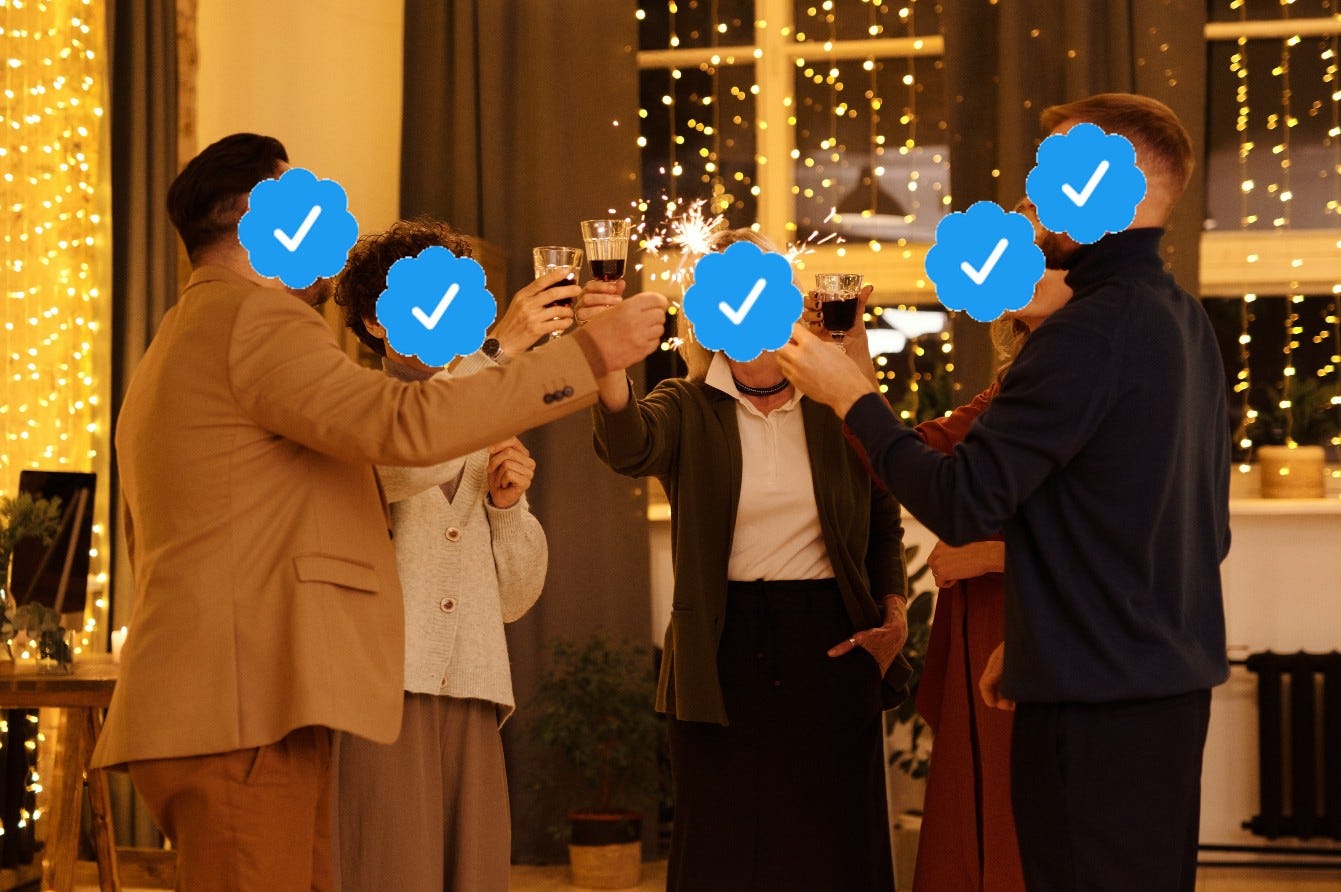Embedded is your essential guide to what’s good on the internet, from Kate Lindsay and Nick Catucci.🧩
Don’t expect this post to mean I’ll be any less awkward at parties now. —Kate
Recently, I went to a party filled almost entirely with people I only recognized from Twitter. This is something I purposefully haven’t done in years, having long ago learned that whatever rapport people may have online, encountering these communities IRL leaves me feeling awkward, as if I'm bad at forming human sentences. But the line between online and IRL significantly blurred this past pandemic year, and I was curious to see if that shift meant this kind of mingling would be any easier for me.
It was not.
This is not a reflection on any of the people at the party. It's just that, despite our increased reliance on social media, we haven’t found a good way to seamlessly weave online and offline interactions together. When I tell someone “I know you from Twitter,” they look at me like I walked in on them in the bathroom a few minutes ago and was for some reason bringing it up again. I’m guilty of this reaction, too! I’ve been lucky to run into some Embedded readers as the world opens back up, and I’m suddenly aware that I’m talking to someone who knows more about me than I know about them. (In a great New Yorker piece a few days ago, Chris Hayes wrote about this exact phenomenon.)
Moving past the world of NYC media (everyone cheers), this is still a problem. We’re all online figures in our communities, big or small, using our platforms to share updates on our jobs, our moves, our relationships—pretty much everything that used to be fodder for small talk at social events. Is it rude to robotically nod along to information I already learned about your life online, or is it even ruder to admit it and cut short the conversation?
To integrate social media into IRL conversation means behaving a little bit like you think you’re a famous person. You have to accept that there are people watching you, that they might know or have deduced things about you that you haven’t directly said to them, that they might be genuinely invested in things about your life without having a strong relationship with you. That feels unfamiliar and gross for a lot of us to do in earnest, but doing the opposite—getting flustered, and embarrassed, and pretending our social media does not exist—cuts conversations short and, for me at least, means I leave the party after just an hour.
These details about my life don't end up on Twitter and Instagram by accident. I’m putting them there on purpose and, unfortunately, care a lot about whether people see it and like them. But it still feels like this little game I’m playing, like my secret Tumblr I had in high school. It was easier to be vulnerable with strangers online than it was the people who knew me IRL. But putting an actual person's face to the metrics suddenly lays bare just how intimate these things really are. Like, say, they had just walked in on me in the bathroom.



